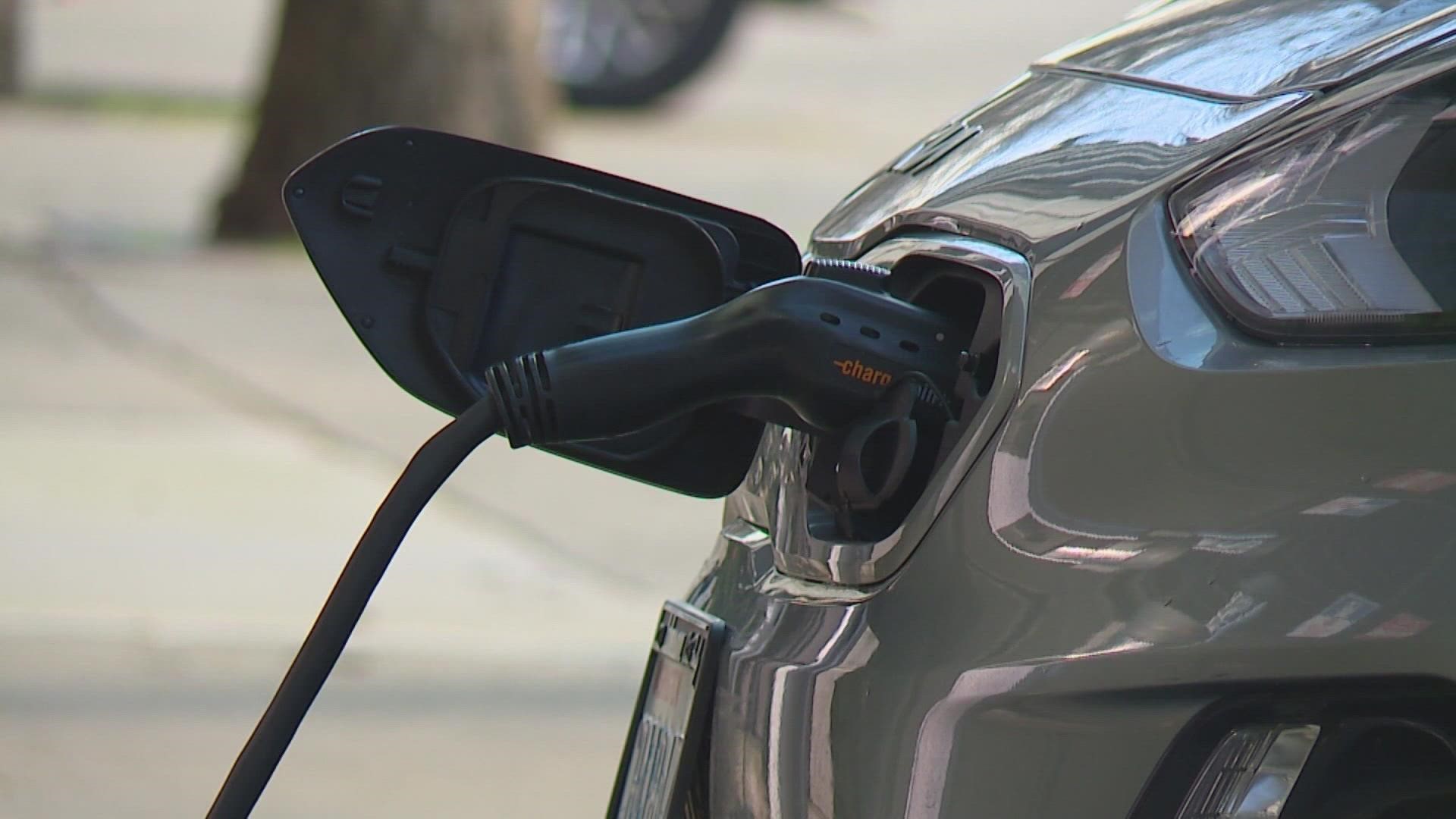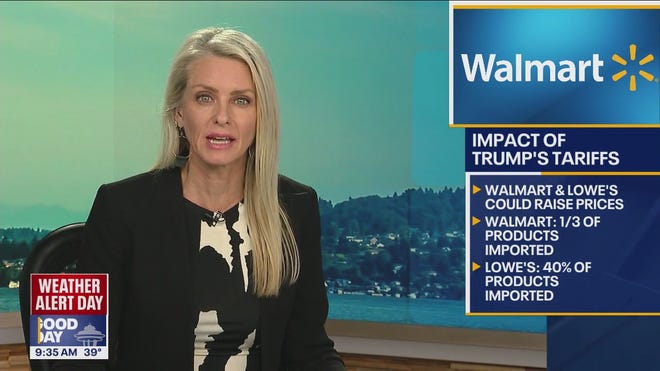Auto Dealers Push Back Against Mandatory Electric Vehicle Sales

Table of Contents
Concerns Regarding Consumer Demand and Readiness
The success of mandatory electric vehicle sales hinges on consumer acceptance, yet several factors currently hinder widespread EV adoption. Dealers are vocal in expressing their concerns about the current market realities.
Insufficient Charging Infrastructure
One major hurdle is the lack of a robust charging infrastructure. Many potential EV buyers, particularly in rural areas, are deterred by the limited availability of public charging stations. This "range anxiety"—the fear of running out of charge—remains a significant barrier. Furthermore, the lack of standardization across different charging networks creates confusion and inconvenience for drivers.
- Dealers cite inadequate infrastructure as a major obstacle to EV adoption.
- Investment in nationwide charging networks, including fast-charging stations, is crucial for successful EV mandates. This needs to include both urban and rural areas to ensure equitable access.
- Addressing interoperability issues between different charging networks is also essential to improve the user experience.
High Purchase Prices and Limited Affordability
EVs typically command higher upfront costs compared to gasoline-powered vehicles, creating a significant barrier to entry for many consumers. While government incentives and subsidies exist, they are often insufficient or inaccessible to a large segment of the population. Concerns about the resale value of EVs in the long term also add to the financial uncertainty.
- Dealers argue that mandatory EV sales disproportionately impact lower-income buyers, exacerbating existing inequalities in access to transportation.
- Government needs to address affordability issues through more comprehensive and accessible subsidies, tax credits, and potentially, innovative financing options.
- Transparency regarding long-term maintenance costs and battery life is also crucial to building consumer confidence.
Challenges for Dealerships in Adapting to the EV Market
The transition to an EV-centric market presents significant challenges for dealerships, requiring substantial investments and changes in business operations.
Training and Expertise Requirements
Selling and servicing EVs requires specialized training for mechanics and sales staff. Dealers need to invest in new tools, equipment, and training programs to handle EV maintenance and repair. A shortage of skilled EV technicians further complicates the situation.
- Dealers express concern about the cost and time required to upskill their workforce, impacting profitability during the transition.
- Government support for training programs, including financial assistance and curriculum development, is essential for a smooth transition.
- Incentivizing technicians to specialize in EV repair through competitive wages and benefits is also necessary to attract and retain talent.
Inventory Management and Logistics
Managing EV inventory presents unique challenges. Fluctuating demand, supply chain disruptions, and the different logistical requirements for handling and transporting EVs necessitate significant changes in dealership operations. Increased storage needs for charging equipment further add to the complexity.
- Dealers highlight the complexities of adapting their existing infrastructure for EVs, including showroom displays and service bays.
- Government assistance, perhaps through grants or low-interest loans, is needed to help dealerships modify their facilities and logistics.
- Streamlining the supply chain for EV parts and batteries can also help alleviate inventory management issues.
The Economic Impact on Dealerships and the Broader Automotive Industry
The rapid shift to EVs has significant economic implications for dealerships and the broader automotive industry.
Potential Job Losses
The decreased demand for gasoline cars poses a threat of job losses in the traditional automotive sector. Retraining programs for affected workers are crucial to mitigate this impact. Uncertainty also hangs over related industries, such as parts suppliers, potentially triggering wider economic ripples.
- Dealerships are apprehensive about the potential economic fallout of rapid EV adoption, emphasizing the need for a gradual transition.
- Government must implement effective mitigation strategies, including robust retraining and job placement programs, to support workers affected by the shift.
- Investing in the growth of related industries, such as battery manufacturing and charging infrastructure development, can offset potential job losses.
Financial Burden of Transitioning to EV Sales
Transitioning to EV sales requires significant capital investment to upgrade facilities, implement new technologies, and acquire the necessary expertise. Dealers face the potential for financial losses during this transition period, especially given the uncertainty surrounding EV demand and profitability.
- Dealers advocate for a gradual transition to avoid financial hardship, allowing them to adapt their businesses steadily.
- Government incentives and support, such as grants, tax breaks, and low-interest loans, are crucial to lessen the financial burden on dealerships.
- A clear and predictable policy framework for EV mandates can help reduce uncertainty and encourage investment in the transition.
Conclusion
The resistance to mandatory electric vehicle sales from auto dealers is not simply opposition to change; it reflects genuine concerns about consumer readiness, infrastructure limitations, and the economic viability of a rapid transition. Addressing these concerns through a collaborative approach, involving government support for infrastructure development, consumer incentives, dealer training, and a phased-in implementation of EV mandates, is vital to ensure a successful and equitable transition to a sustainable automotive future. Ignoring the legitimate anxieties of auto dealers will only hinder the progress of widespread electric vehicle adoption. A more pragmatic approach focusing on cooperation rather than confrontation will ultimately lead to a more effective and successful rollout of mandatory electric vehicle sales and a healthier automotive industry overall. A balanced approach, addressing both the environmental benefits and the economic realities, is crucial for the future of electric vehicle adoption and the success of mandatory electric vehicle sales policies.

Featured Posts
-
 Retail Giants Walmart And Target Address Tariff Issues With President Trump
Apr 23, 2025
Retail Giants Walmart And Target Address Tariff Issues With President Trump
Apr 23, 2025 -
 Umpires Decision Angers Tigers Hinch Challenges Mlb For Replay Evidence In Plate Call Controversy
Apr 23, 2025
Umpires Decision Angers Tigers Hinch Challenges Mlb For Replay Evidence In Plate Call Controversy
Apr 23, 2025 -
 Canadas Economic Slowdown Posthaste Analysis And Predictions
Apr 23, 2025
Canadas Economic Slowdown Posthaste Analysis And Predictions
Apr 23, 2025 -
 20 Point Lead Lost Dissecting Pierre Poilievres Election Campaign
Apr 23, 2025
20 Point Lead Lost Dissecting Pierre Poilievres Election Campaign
Apr 23, 2025 -
 Hudsons Bay Closures Where Will Brands Find New Retail Space
Apr 23, 2025
Hudsons Bay Closures Where Will Brands Find New Retail Space
Apr 23, 2025
